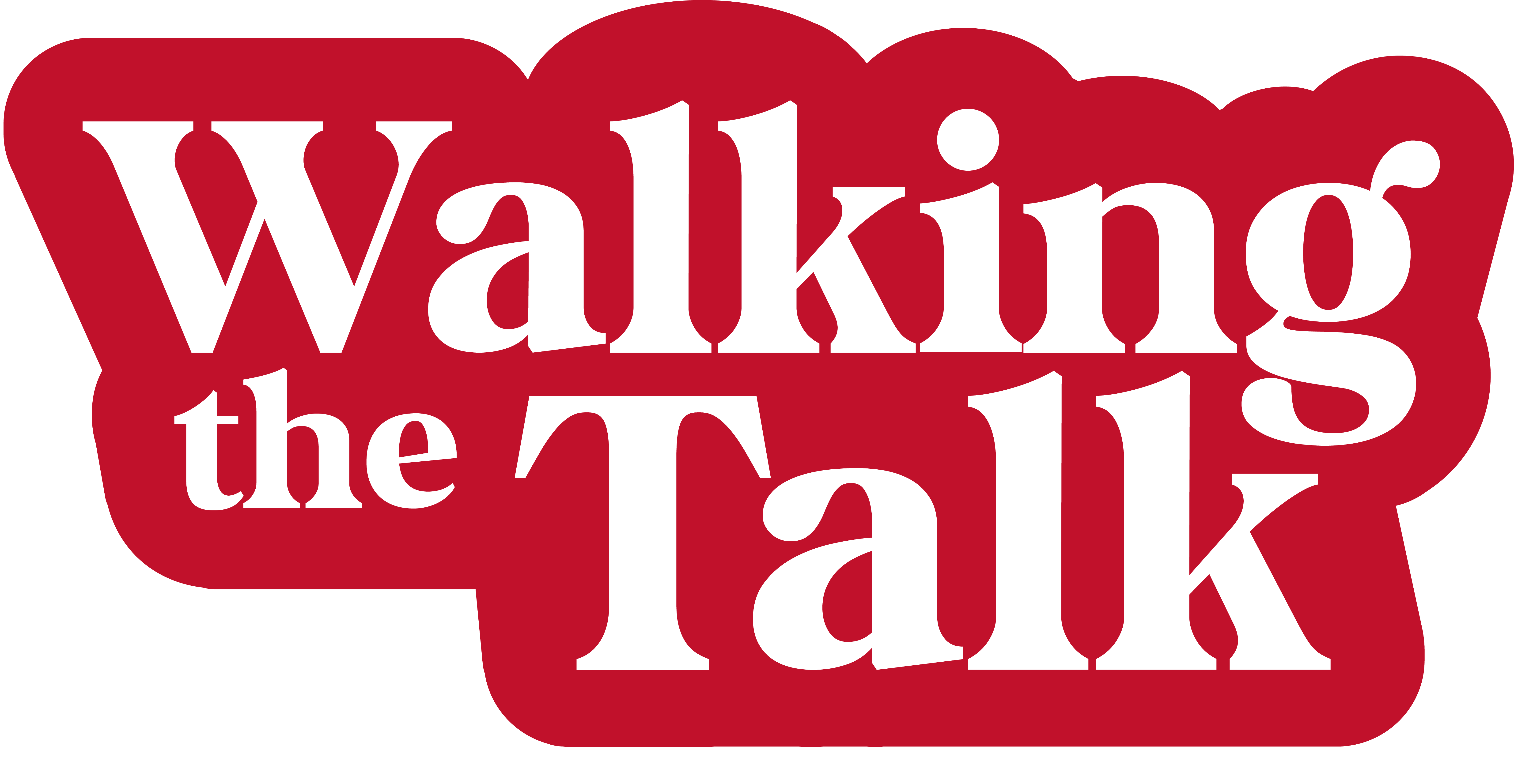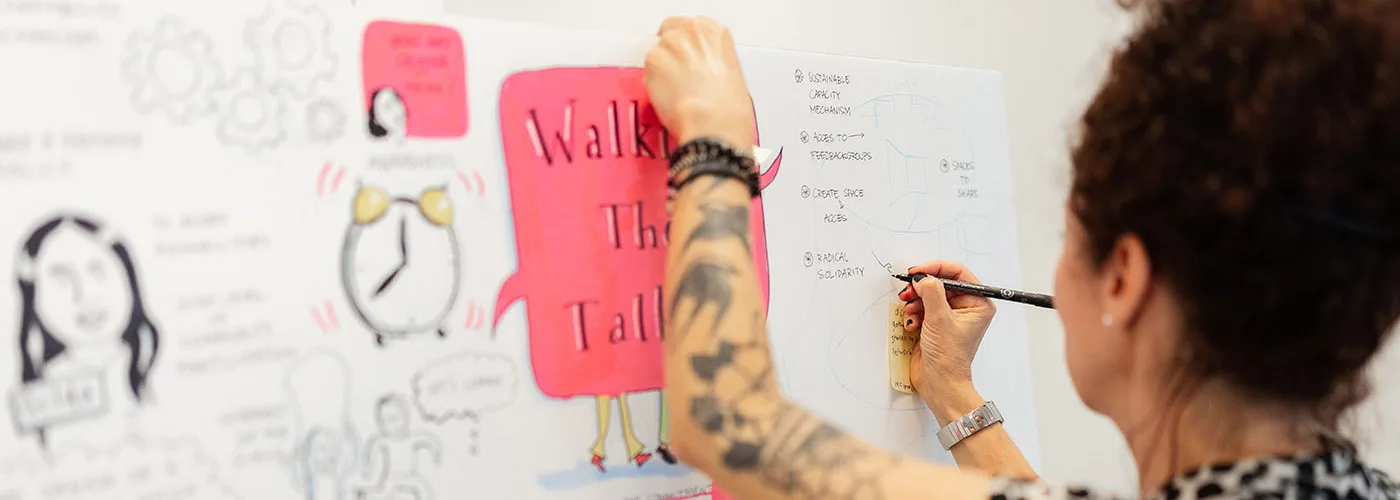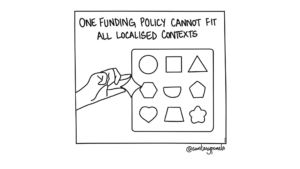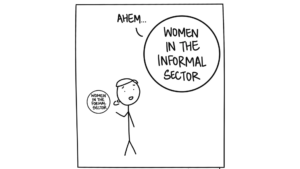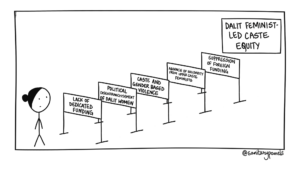Key information
Region: Sub-Saharan Africa
Researchers: Stellah Bosire and Memory Kachambwa
Advocacy Summary
The sovereign debt crisis in sub-Saharan Africa disproportionately affects women, girls, and gender-diverse individuals, as austerity-driven policies prioritize debt repayment over public health and human rights (Chipunza and Ntsalaze 2024). These budget cuts deepen existing inequalities, compounding financial constraints that intersect with gender-based violence, economic disempowerment, and social marginalization (United Nations 2023). Despite various debt relief mechanisms, mainstream approaches remain blind to gendered realities, prioritizing macroeconomic stability over social justice (Hawkins and Zucker-Marques 2024).
This research critically examines sovereign debt relief frameworks through a feminist lens, questioning how leveraging debt forgiveness and restructuring can advance gender justice. Structural adjustment programs mandated by financial institutions have historically entrenched gender disparities by prioritizing debt servicing over investments in essential services (Ghosh, 2021). While mechanisms like the Heavily Indebted Poor Countries (HIPC) Initiative and the Debt Service Suspension Initiative have provided temporary relief, they fail to address the disproportionate impact of debt crises on women and marginalized communities (UNDP, 2022). A feminist debt relief model is imperative—one that links debt restructuring to gender-responsive health investments, ensures accountability, and channels freed resources toward feminist movements and community-led solutions.
The paper suggests implementing debt forgiveness and restructuring which promotes and upholds gender justice. It calls for debt servicing through investment in social services. This paper is a great tool to advocate for debt forgiveness and restructuring by monetary institutions based on a commitment from Majority World countries to invest the resources in social services.
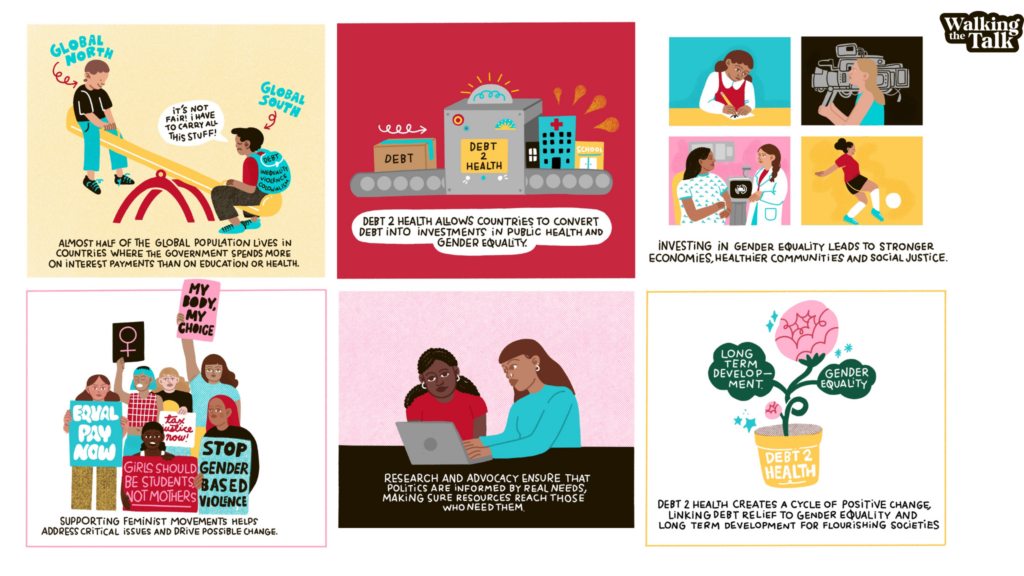
Recommendations
- Integrate Gender-Transformative Approaches into Debt Relief: Ensure that debt relief frameworks prioritize the health and social needs of women, girls, and marginalized populations.
- Adopt Feminist Debt Relief Models: Mandate reinvestment of unlocked debt relief funds into gender-equitable healthcare, reproductive rights, and gender-based violence prevention.
- Implement Gender-Transformative Debt Swaps: Establish debt-for-gender swaps to channel funds toward feminist movements addressing intersectional health inequities.
- Advance Inclusive Debt Governance: Promote participatory decision-making that elevates women’s leadership in debt negotiations and financial policymaking.
- Prioritize Investments in Women’s Health: Use debt relief savings to strengthen gender-transformative healthcare infrastructure and expand access to sexual and reproductive health services.
Authors

Stellah Bosire
Dr. Stellah Bosire is an intersectional feminist medical doctor, lawyer, global health practitioner, and author. She is the Executive Director of the Africa Centre for Health Systems and Gender Justice, an African women-led organization focused on transforming health outcomes by addressing gender-based disparities through gender equity, innovation, sustainable investment, and philanthropy advisory. Stellah also serves as Amnesty International Kenya’s Chairperson and a CIVICUS Alliance Board Member. She holds Medicine, Healthcare Management, Global Health, and law degrees.

Memory Kachambwa
Memory Kachambwa is an intersectional feminist and women’s rights activist with over 18 years of experience in gender and development, women’s empowerment, and human rights at national, regional, and international levels. She is the Executive Director of FEMNET and a pan-African feminist, strategist, and thought leader passionate about social justice and gender equality. She holds a Master of Philosophy degree in Management, Integrated Water Resources, focusing on women in leadership. She is pursuing a second Master’s in Peace, Human Rights, Gender, and Development.
